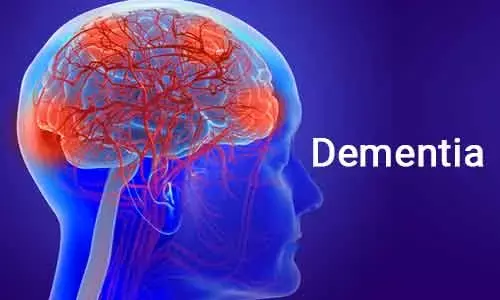- Home
- Medical news & Guidelines
- Anesthesiology
- Cardiology and CTVS
- Critical Care
- Dentistry
- Dermatology
- Diabetes and Endocrinology
- ENT
- Gastroenterology
- Medicine
- Nephrology
- Neurology
- Obstretics-Gynaecology
- Oncology
- Ophthalmology
- Orthopaedics
- Pediatrics-Neonatology
- Psychiatry
- Pulmonology
- Radiology
- Surgery
- Urology
- Laboratory Medicine
- Diet
- Nursing
- Paramedical
- Physiotherapy
- Health news
- Fact Check
- Bone Health Fact Check
- Brain Health Fact Check
- Cancer Related Fact Check
- Child Care Fact Check
- Dental and oral health fact check
- Diabetes and metabolic health fact check
- Diet and Nutrition Fact Check
- Eye and ENT Care Fact Check
- Fitness fact check
- Gut health fact check
- Heart health fact check
- Kidney health fact check
- Medical education fact check
- Men's health fact check
- Respiratory fact check
- Skin and hair care fact check
- Vaccine and Immunization fact check
- Women's health fact check
- AYUSH
- State News
- Andaman and Nicobar Islands
- Andhra Pradesh
- Arunachal Pradesh
- Assam
- Bihar
- Chandigarh
- Chattisgarh
- Dadra and Nagar Haveli
- Daman and Diu
- Delhi
- Goa
- Gujarat
- Haryana
- Himachal Pradesh
- Jammu & Kashmir
- Jharkhand
- Karnataka
- Kerala
- Ladakh
- Lakshadweep
- Madhya Pradesh
- Maharashtra
- Manipur
- Meghalaya
- Mizoram
- Nagaland
- Odisha
- Puducherry
- Punjab
- Rajasthan
- Sikkim
- Tamil Nadu
- Telangana
- Tripura
- Uttar Pradesh
- Uttrakhand
- West Bengal
- Medical Education
- Industry
Faulty dementia gene may double the risk of developing severe COVID-19

Researchers at the University of Exeter Medical School and the University of Connecticut School of Medicine have found in a large-scale study that having a faulty gene linked to dementia doubles the risk of developing severe COVID-19. The new research has been published in the Journal of Gerontology: Medical Sciences.
They analysed data from the UK Biobank, and found high risk of severe COVID-19 infection among European ancestry participants who carry two faulty copies of the APOE gene (termed e4e4). One in 36 people of European ancestry have two faulty copies of this gene, and this is known to increase risks of Alzheimer's disease up to 14-fold* and also increases risks of heart disease.
Now, the research team has found that carrying these gene mutations doubles the risks of COVID-19 - even in people who had not developed these diseases.
The team has previously found that people with dementia are three times more likely to get severe COVID-19, yet they are not one of the groups advertised to shield - or shelter in place - on health grounds. Part of the increased risk effect may have been exposure to the high prevalence of the virus in care homes. However, the new study indicates that a genetic component may also be at play. The team found that people with the APOE e4e4 genotype were at double the risk of developing severe COVID-19, compared to those with the common e3e3 form of the APOE gene. The team used data from the UK Biobank study, which collects health and genetic data on 500,000 people.
The majority of people in the population and in the sample size have not yet been exposed to the virus. In this analysis, 2.36% (n=9,022) of participants with European ancestries (n=382,188) had the ApoE e4e4 faulty gene, but 5.13% (n=37) of those who tested positive for COVID-19 (n=721) had this gene variant, suggesting the risk is doubled compared to e3e3 (410 per 100,000 versus 179 per 100,000).
Co-author Dr. Chia-Ling Kuo, of the UConn School of Medicine, said: "This is an exciting result because we might now be able to pinpoint how this faulty gene causes vulnerability to COVID-19. This could lead to new ideas for treatments. It's also important because it shows again that increasing disease risks that appear inevitable with ageing might actually be due to specific biological differences, which could help us understand why some people stay active to age 100 and beyond, while others become disabled and die in their sixties."
Professor David Melzer, who led the team, said: "Several studies have now shown that people with dementia are at high risk of developing severe COVID-19. This study suggests that this high risk may not simply be due to the effects of dementia, advancing age or frailty, or exposure to the virus in care homes."
Melzer stresses: "The effect could be partly due to this underlying genetic change, which puts them at risk for both COVID-19 and dementia."
For further reference log on to:
The Journals of Gerontology: Series A, glaa131, https://doi.org/10.1093/gerona/glaa131
Dr Kamal Kant Kohli-MBBS, DTCD- a chest specialist with more than 30 years of practice and a flair for writing clinical articles, Dr Kamal Kant Kohli joined Medical Dialogues as a Chief Editor of Medical News. Besides writing articles, as an editor, he proofreads and verifies all the medical content published on Medical Dialogues including those coming from journals, studies,medical conferences,guidelines etc. Email: drkohli@medicaldialogues.in. Contact no. 011-43720751


